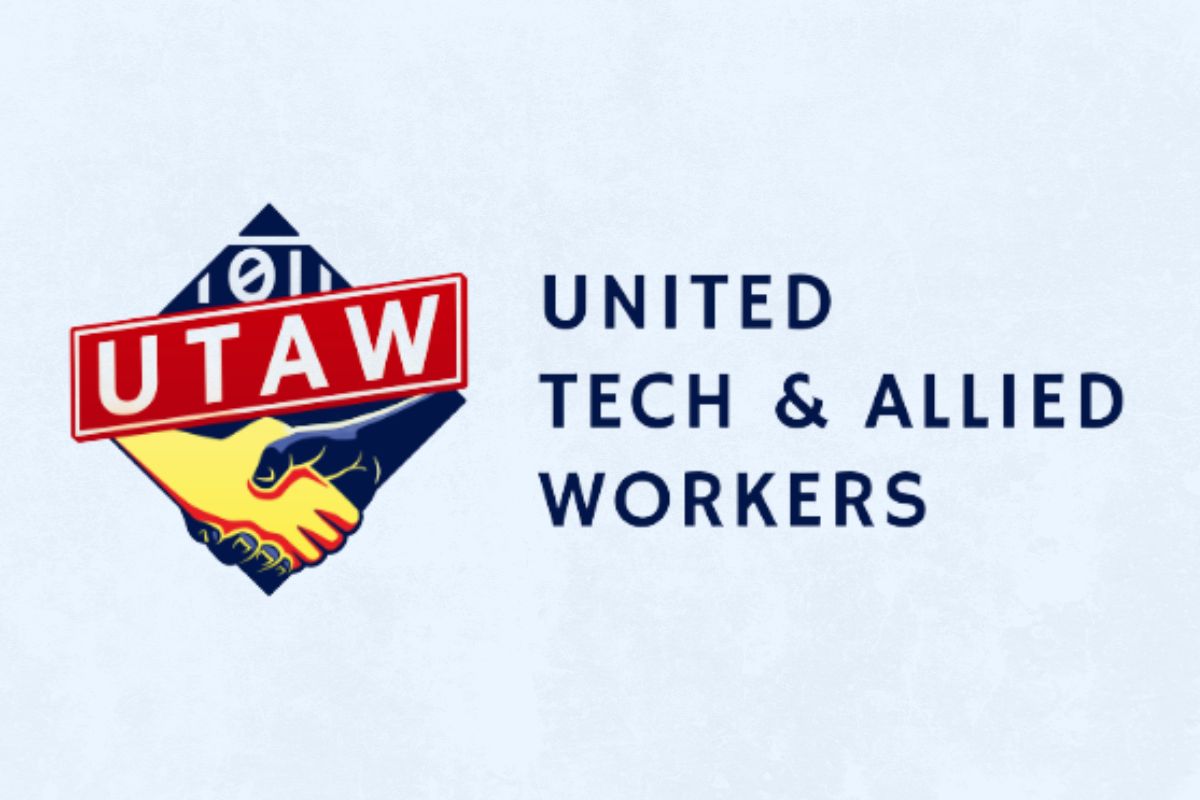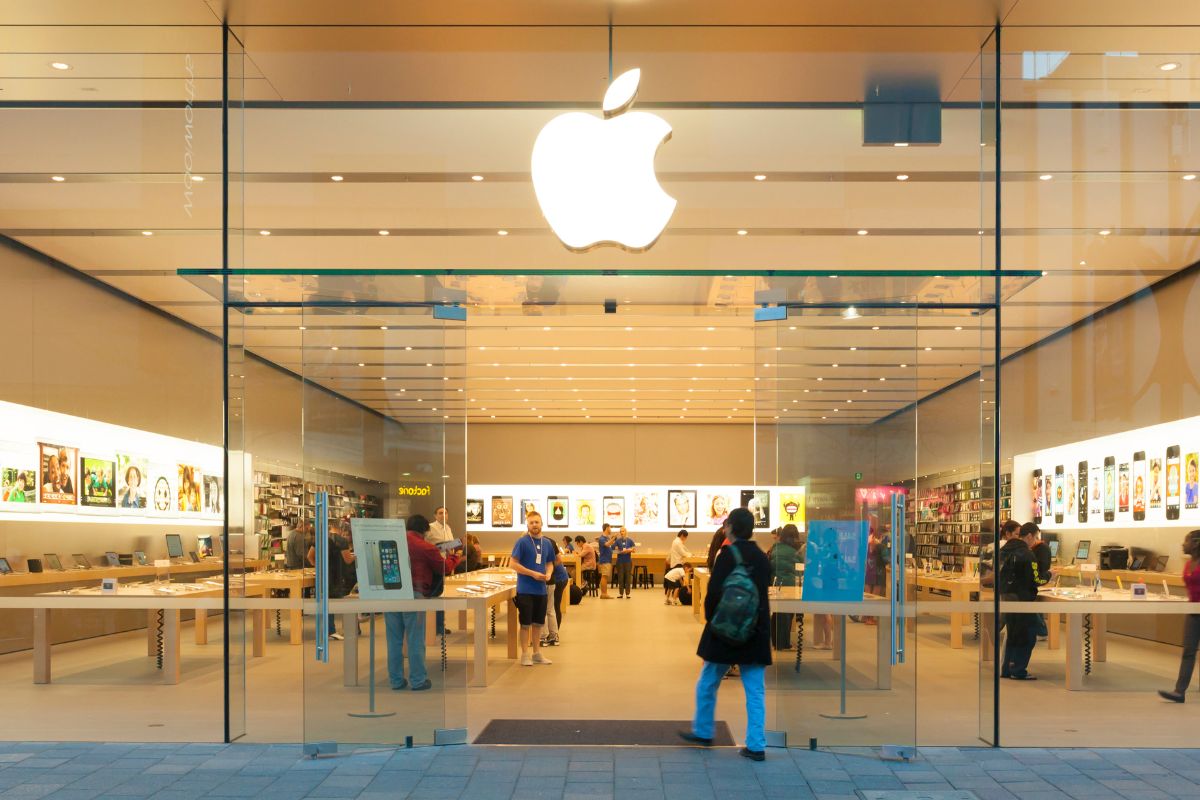Activists are taking steps to organise workers at Apple stores in London – part of a global unionisation movement in the tech industry. The trade unions must throw their weight behind these efforts, and fight for workers’ control of Big Tech.
United Tech and Allied Workers (UTAW) – an arm of the Communication Workers’ Union (CWU) – have recently started organising Apple store workers in central London, in the hopes of building a union presence inside the infamous multinational’s UK operations.
Apple is the largest tech company in the world, making super-profits in a lucrative sector. But this is off the back of the labour of all of its employees internationally, who are now starting to organise and fight back.
This unionisation effort is no doubt partly-inspired by the recent efforts of Apple store workers in the USA, as well as resurgent activity on the industrial front in Britain.
Although it is still early days for this campaign, as the saying goes: from small pips, mighty apple trees grow.
Out today talking to the wonderful team at Apple Covent Garden, who want better shifts, better pay and a safer, fairer workplace. ✊@CWUnews @UTAW_uk pic.twitter.com/KxbOsjgGib
— UTAW@Apple (@AppleUTAW) July 7, 2022
‘All in this together’
In order to prevent unionising, members of UTAW were told that Apple stores deliberately foster a “cult-like” work environment, in which workers are told that what’s good for Apple is good for employees.
Such tactics are common amongst these Silicon Valley monopolies. By fomenting a cynical “we’re all in this together” atmosphere, as one Apple worker put it, the bosses try to convince the workers into thinking that their interests align with those of the company’s – that is, in the interests of making as much profit for the tech capitalists as possible.
But Apple’s attempts are in vain, as the cost-of-living crisis is making it plain to see that the interests of the bosses and workers are clearly at odds. Intensifying class struggle, meanwhile, is cutting through the capitalists’ propaganda.
UTAW members have also discussed working conditions with Apple workers. Many complained about the exhaustive nature of their shift patterns, with back-to-back evening and morning shifts.
A poll conducted by the union showed that 50% of Apple workers believe that these shift patterns have a detrimental impact on their mental health.
Notably, these shift plans are reportedly decided – in large part – by an algorithm, without any care for workers’ needs and schedules in mind.
As Marx explained: without organisation, the working class is only raw material for exploitation.
Internationalism

This unionisation campaign is part of an international struggle. The spark for UTAW’s UK initiative originated in the US. The first Apple store union was only officially recognised a month ago, on 19 June, in Maryland.
Even the largest tech company, in the strongest capitalist country on the planet, is not immune from the rising consciousness and radicalisation of the working class.
In the US, the company has resorted to union-busting tactics to try and stop workers’ organising efforts. This has included effectively interrogating workers about union activity; banning staff from posting flyers in shared spaces; and mandatory anti-union presentations to all employees.
These were (and still are) the same obstacles facing workers at Starbucks, however. But in just a matter of months, from the first store voting to unionise, there are now over 250 unionised Starbucks.
Tech industry workers across the world have started to move into action in recent years. Here in Britain, UTAW itself was born out of the global walkouts by Google workers against harassment and discrimination. Similar walkouts have also taken place at computer gaming giant Activision Blizzard.
Fight back
A tidal wave is clearly building in the workers movement. As the crisis deepens, more and more are deciding that now is the time to get organised and fight.
In fact, the positive reception that UTAW has received is proof enough of this growing radicalism. Some have welcomed us with open arms; others have told us that they’ve been waiting for a union to be set up.
It is vital that the wider labour movement – in the USA and Britain – seizes on this mood. This means organising the unorganised, and arming a new generation of grassroots union activists with the resources needed to go into battle against the bosses.
UTAW itself is a branch of the CWU, whose members in the telecoms industry and postal service are already moving into action.
Bold unionsation efforts must be part of a conscious strategy by the trade union movement to organise new layers. This should be linked to plans for coordinated action between unions, which can serve to awaken the wider working class to the power we hold.
In turn, the trade unions must link these industrial struggles in the workplace to a political programme – to a clear socialist alternative, involving the expropriation of these super-rich tech companies, along with the big banks and major monopolies, as part of a plan of production under workers’ control.
Workers are on the move. And the writing is on the wall: not only for the likes of Apple boss Tim Cook and the rest of Big Tech, but for the capitalist class as a whole.






